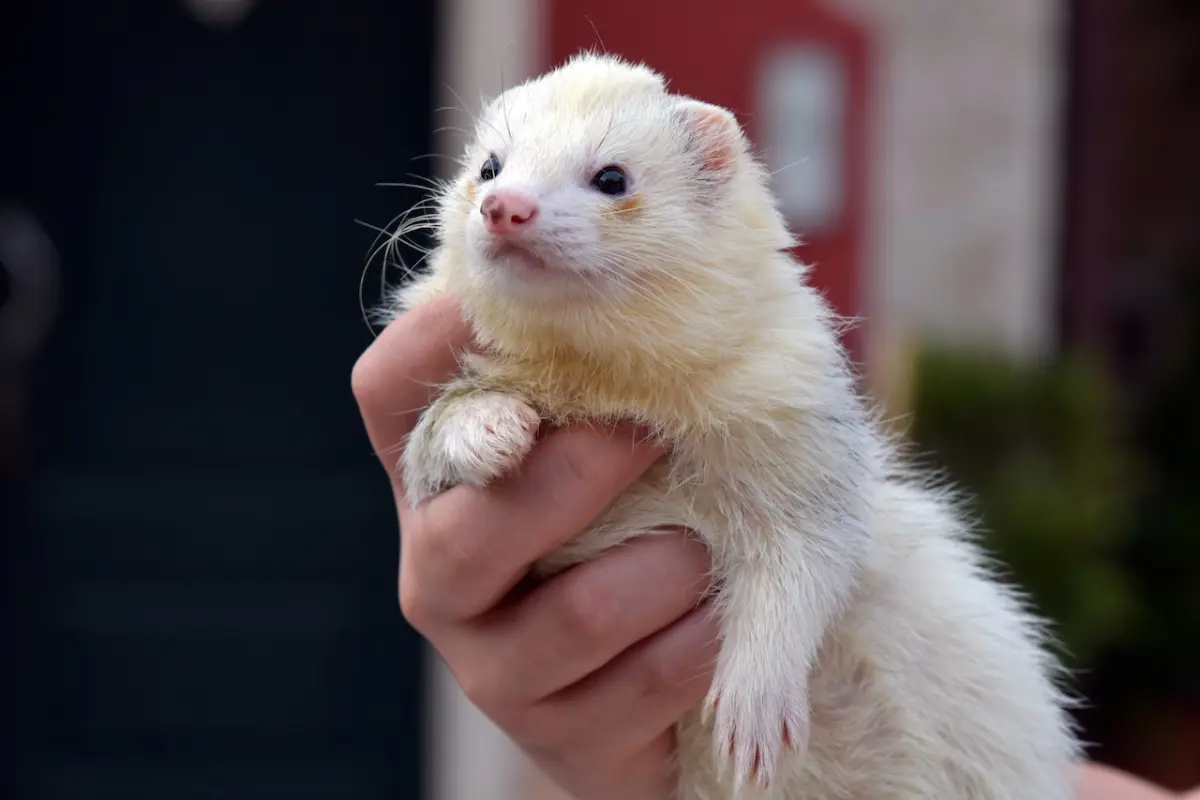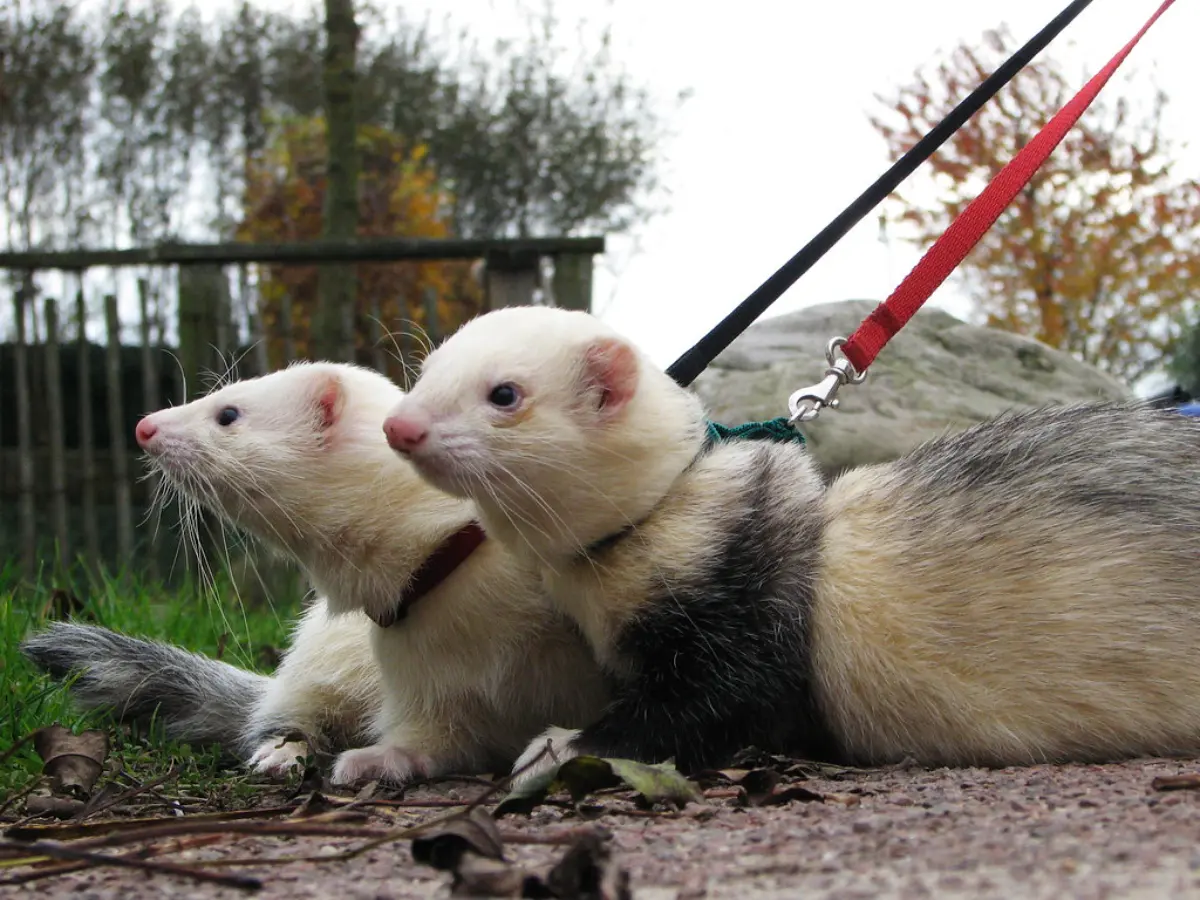Ferrets are intelligent, curious, and playful creatures that can make wonderful pets. However, they may sometimes develop a biting habit, which can be a nuisance for their owners. Fortunately, there are several methods to stop a ferret from biting. Here are some awesome tips and techniques to help you train your ferret to stop biting.
1. Understand the Cause
Before attempting to stop a ferret from biting, it’s essential to understand the cause of the behavior. Ferrets may bite for various reasons, including:
- Playfulness
- Fear or stress
- Pain or discomfort
- Territorial behavior
Identifying the cause of your ferret’s biting will help you address the issue more effectively.
2. Socialization and Handling
Ferrets need regular socialization and handling to become comfortable with humans. Spend time with your ferret daily, allowing them to explore and play while you supervise. Gently handle your ferret, petting and stroking them to build trust and familiarity. The more comfortable your ferret is with you, the less likely they are to bite.
Tips for Proper Handling:
- Approach your ferret slowly and calmly.
- Speak to your ferret in a gentle, soothing voice.
- Allow your ferret to sniff your hand before attempting to pick them up.
- Support your ferret’s body with both hands when lifting them.
- Avoid holding your ferret too tightly, as this may cause them to feel threatened and bite.

3. Positive Reinforcement
Reward your ferret with treats, praise, or playtime when they interact with you without biting. This will help them associate positive experiences with not biting and encourage them to repeat the behavior.
Tips for Using Positive Reinforcement:
- Be consistent in rewarding your ferret for good behavior.
- Use small, healthy treats that your ferret enjoys.
- Reward your ferret immediately after they display the desired behavior so they can make the connection between the action and the reward.
4. Bite Inhibition Training
When your ferret bites you, respond with a firm “no” and immediately stop interacting with them. This will help them understand that biting is not an acceptable behavior. You can also try a technique called “scruffing,” where you gently hold the loose skin on the back of your ferret’s neck, similar to how a mother ferret would carry her young. This can help calm your ferret and discourage biting.
Tips for Bite Inhibition Training:
- Be consistent in your response to biting.
- Avoid yelling or physically punishing your ferret, as this may cause fear and stress, leading to more biting.
- Praise your ferret when they stop biting and interact with you gently.
5. Redirect the Behavior
Provide your ferret with appropriate chew toys to help redirect their biting behavior. Ferrets enjoy chewing on various materials, so provide a variety of toys for them to explore. This will help satisfy their natural urge to chew and bite while protecting your hands and belongings.
Tips for Redirecting Biting Behavior:
- Offer toys made of different materials, such as rubber, fabric, and wood.
- Rotate toys regularly to keep your ferret interested and engaged.
- Supervise your ferret during playtime to ensure they are not ingesting harmful materials.
6. Create a Calm Environment
Stress can contribute to biting behavior, so ensure your ferret has a calm, comfortable environment. Provide a clean, spacious cage with hiding spots, toys, and soft bedding. Minimize loud noises and sudden movements that may startle your ferret.
Tips for Creating a Calm Environment:
- Place your ferret’s cage in a quiet area of your home, away from high-traffic areas and noisy appliances.
- Use a cage cover or blanket to create a dark, cozy space for your ferret to retreat to when they feel stressed or overwhelmed.
- Ensure your ferret has access to fresh water and nutritious food.
7. Consult a Veterinarian
If your ferret continues to bite despite your efforts, consult a veterinarian to rule out any medical issues that may be causing the behavior. Pain or discomfort can cause a ferret to bite, so it’s essential to address any health concerns.
8. Be Patient and Consistent
Training a ferret to stop biting takes time and patience. Be consistent in your training techniques and give your ferret plenty of opportunities to learn and practice appropriate behavior. With dedication and persistence, you can successfully teach your ferret to stop biting.
Wrapping up
Understanding the cause of your ferret’s biting behavior, proper socialization and handling, positive reinforcement, bite inhibition training, redirecting the behavior, creating a calm environment, consulting a veterinarian, and being patient and consistent are all essential steps in stopping your ferret from biting. By following these comprehensive tips, you can enjoy a happy, healthy, and bite-free relationship with your ferret.
